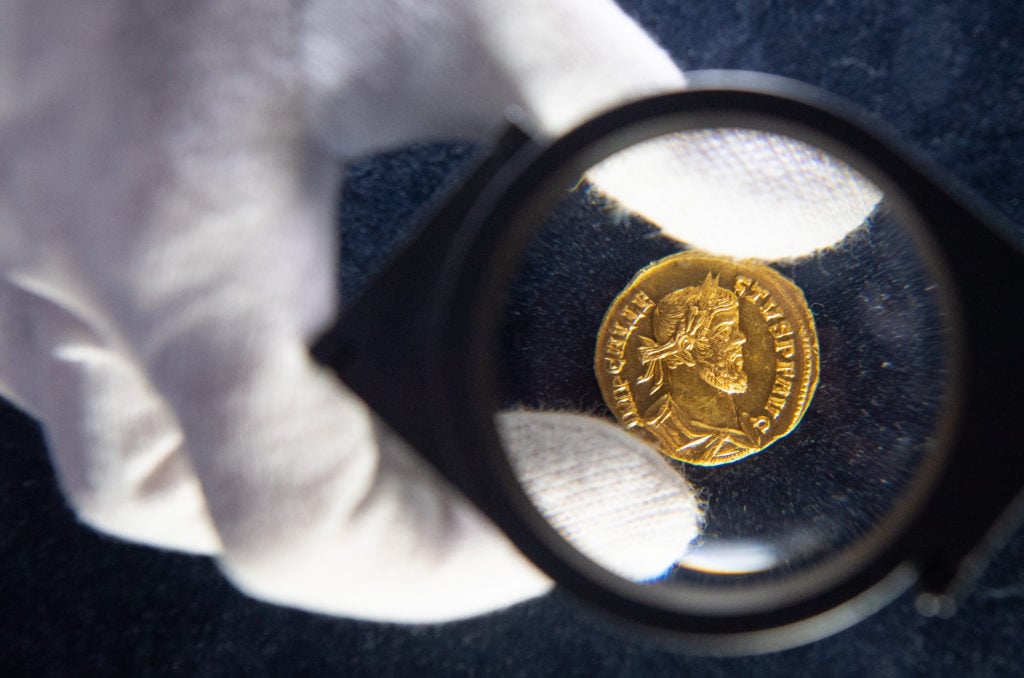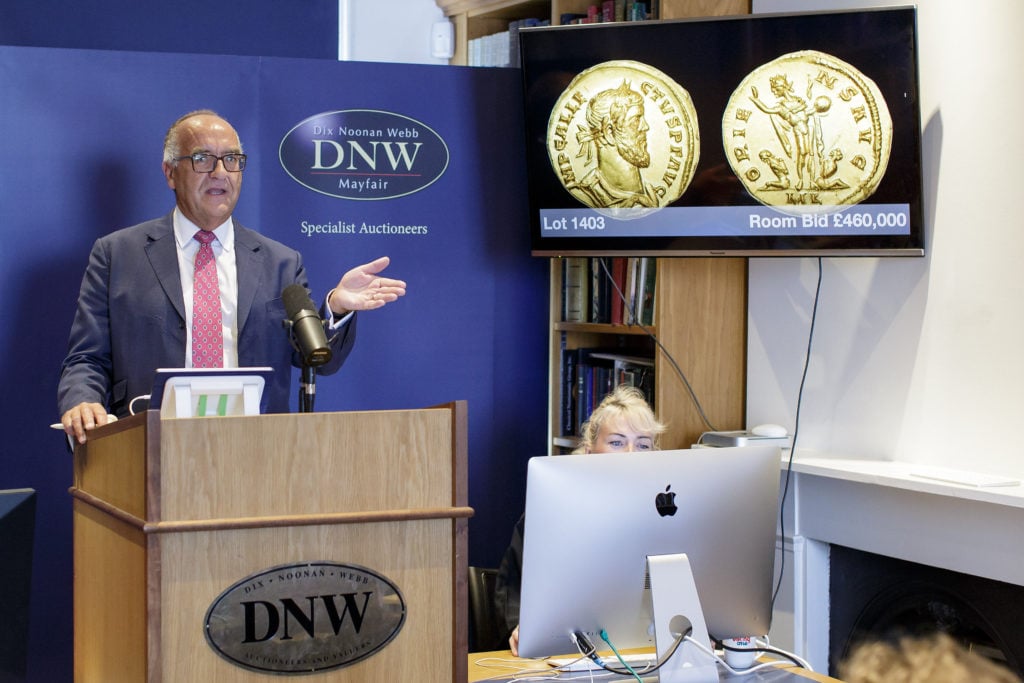Art World
An Ancient Roman Gold Coin Found in a Field Just Sold for $700,000 at Auction, Making One Very Happy Metal Detectorist
The coin sold for five times its estimate.

The coin sold for five times its estimate.

A 30-year-old British man with a metal detector came across a small 24-carat gold coin the size of a penny this past March. Yesterday, it sold at auction for $700,000.
The 1,700-year-old coin, an ancient Roman aureus, depicts the face of Allectus, a finance minister in Roman Britain who usurped the crown by murdering the sitting emperor, Carausius. It was estimated to sell for between $90,000 and $127,000 at the London-based coin, medal, and jewelry auction house Dix Noonan Webb. But warring bidders skyrocketed the price, with an unidentified collector ultimately placing the final bid by telephone.
“This is the most expensive coin that we have ever sold at Dix Noonan Webb,” said Christopher Webb, director of the house’s coin department, in a statement. “As well as being one of the world’s most expensive Roman coins, it is the most money ever paid for a coin of Allectus and it is now the most valuable Roman coin minted in Britain to have been sold at auction.”

Christopher Webb, director of Dix Noonan Webb’s coin department. Courtesy of Dix Noonan Webb.
Known for leading attempts to annex Britain from the Roman empire, today Allectus is playfully described as the first Brexiteer. The currency was minted to fund Emperor Allectus’s accession in 293 before likely being demonetized upon his death three years later. Only 24 such coins exist in the world, while the sole other example cast from the same dyes belongs to the British Museum.
The museum assisted in authenticating the coin this year after it was uncovered in a freshly-plowed field abutting an old Roman road near Dover, Kent. The man who discovered it, who has kept his identity private, had searched the field on several occasions before, coming up empty each time. The last time he tried, he discovered the aureus after just 45 minutes.
“I cannot believe it, we are ecstatic!” the man said in the auction house’s statement. “We expected it to sell for a little over estimate, but not five times the estimate!”
The proceeds from the sale will be split between the finder and the landowner.